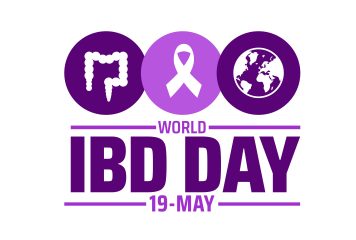Fall 2021 Internal Medicine Board Summary
December 22, 2021 | Posted by ABIM | ABIM Governance

Asher A. Tulsky, MD Chair, Internal Medicine Board
The Internal Medicine Board met virtually on November 2, 2021 to discuss recent and upcoming changes at ABIM, as well as many other important issues facing the discipline.
Meeting guests included:
- ABIM Internal Medicine Board Exam Committee Co-Chairs Rachel Simmons, MD and John Raimo, MD.
- ABIM Hospital Medicine Exam Committee Chair Benjamin A. Hohmuth, MD
Below is a summary of the key takeaways from the meeting:
Leadership Update
Richard J. Baron, MD, ABIM President and CEO, joined the Internal Medicine Board to provide members with recent updates, including:
- Reflecting on the spring 2021 Internal Medicine Summit, and how ABIM and specialty societies could collaborate to advance diversity, equity and inclusion (DEI) efforts across internal medicine. He noted that 30 years of research show how structural racism has impacted health outcomes, and ABIM believes that part of remaining current in medical knowledge includes physicians being cognizant of that literature and incorporating it into practice. As such, ABIM will begin collecting data on race and ethnicity and will research how to incorporate questions about DEI on assessments.
- Sharing reactions to a joint statement issued by ABIM, the American Board of Family Medicine (ABFM), and the American Board of Pediatrics (ABP) cautioning physicians that disseminating misinformation on COVID-19 is contrary to ethical and professional practice. Baron said the reaction was overwhelmingly positive with many thanking ABIM for making the statement. He noted there were a few people who saw this as infringement on freedom of speech and chilling the conversation between physicians and patients. He said he found that disconcerting, because ABIM and the medical community should ground decisions and statements in science and evidence, with COVID-19 vaccination widely accepted as safe and effective. Specialty Board members said they were very proud of the statement about misinformation by ABIM. Some noted that they continue to have a number of challenges in their clinical practices, such as patients’ families calling and asking for Ivermectin, and people denying they have COVID after receiving a positive COVID test.
- Previewing the Longitudinal Knowledge Assessment (LKA), slated to launch in January 2022 in 12 specialties including internal medicine. Dr. Baron noted that beginning in 2022, physicians will have the opportunity to pay less for Maintenance of Certification (MOC) if they enroll in the LKA, even if they hold multiple certificates, because the LKA will be included in the annual MOC program fee.
Candidate Recruitment
Candidates for the Internal Medicine Board were reviewed and discussed. Two were chosen from among the many well-qualified candidates to be presented to the ABIM Council, who will make the final decision. New Specialty Board members will be notified in the spring, and begin their terms July 1, 2022.
Diversity, Equity and Inclusion: Progress Report
Pamela Browner White, Senior Vice President of Communications and Chief Diversity, Equity and Inclusion Officer; Lorna Lynn, MD, Vice President for Medical Education Research and the Staff Administrator for the Board of Director’s Committee on Diversity, Equity and Inclusion; and Weifeng Weng, PhD, Director of Research Analysis, updated the Internal Medicine Board on ABIM’s progress in advancing DEI and becoming an actively anti-racist organization.
Ms. Browner White noted that she has been Chief Diversity, Equity and Inclusion Officer for a little more than a year at the time of the meeting, and encouraged Specialty Board members to visit the year in review post on the ABIM blog.
She noted that the organization is beginning with race and ethnicity data to understand the makeup of ABIM diplomates but the committee understands that diversity is much broader than that.
She also reminded the Specialty Board of ABIM and ABIM Foundation’s Racial Justice statement: “It’s not simply enough to say passively we will do no harm; we pledge actively to do our part in opposing and dismantling systems and policies that cause harm to our patients and disproportionately affect those in Black and Brown communities.”
She said much of the work has been guided by this statement, and updated members in a number of areas ABIM is making progress.
Dr. Lynn and Dr. Weng then provided an overview of race and ethnicity data for the overall internal medicine diplomate population. Dr. Lynn noted that while the current reports rely on external data, in the future, ABIM will ask diplomates to self-identify with regards to their gender, race and ethnicity.
To this end, ABIM will collaborate with society partners and others to decide on what identifiers will be used. It will also be important to be clear as to why we will begin to collect this information; it’s all about assuring that our programs are fair, and that we make sure a broad range of voices are included in our discussions.
Internal Medicine Board members shared their reactions to these data and their ideas for how ABIM can best move this work forward, as well as their personal experiences working within their own institutions. Many expressed their disappointment that there has not been an increase in the number of Black and Hispanic physicians, and that the number has been flat for many years. Some recommended that the “Asian” category should be divided into more categories to allow for a better understanding of how people identify.
As ABIM continues this work it will keep the community informed on its progress. More information can be found in a special section of our blog entitled ABIM’s Commitment to Health Equity.
Growth of Hospital Medicine
Rebecca Lipner, PhD, ABIM’s Senior Vice President of Assessment and Research, along with colleagues, presented an update on research they had initially shared with the Specialty Board at its spring meeting that looked at how an internist’s practice focus may change over the course of their career. The research findings will help inform possible updates to ABIM’s Maintenance of Certification (MOC) assessments in the future.
The data revealed that the number of physicians who began their career as hospitalists increased from 40% in 2007 to 73% in 2017, a much larger change than anticipated. The number of physicians who began their career in mixed work decreased from 39% in 2007 to 14% in 2017.
Currently, internists can choose either an Internal Medicine or Focused Practice in Hospital Medicine (FPHM) assessment for MOC. The study found just 11.5% of hospitalists took the FPHM MOC assessment between 2010 and 2018, and this percentage does not appear to be increasing despite the larger number of physicians beginning their careers as hospitalists and staying in that career.
The Internal Medicine Board explored why the FPHM assessment isn’t more popular amongst those practicing in a hospital setting, and discussed if the exam content, knowledge about the FPHM pathway, and the value of the FPHM pathway in the environment may be factors.
An independent physician scientist reviewed a sample exam and found that 86% of the scenarios were appropriate for both hospitalists and outpatient specialists even if the setting stated otherwise.
The Specialty Board discussed current and future MOC assessment options for internists, and additional research would be needed to inform their decisions. The ABIM research team will do additional analysis about why more physicians were not choosing the FPHM pathway and will engage the Society of Hospital Medicine (SHM) in the work.
Longitudinal Knowledge Assessment (LKATM) Update
Alison Carey, Senior Director of Engagement and Digital Experience, gave the Specialty Board a preview of the Longitudinal Knowledge Assessment (LKA) Platform and updated them about how ABIM has engaged physicians throughout the development process to ensure it will meet their needs and provide a good user experience.
The engagement work included establishing a Physician Advisory Panel of 10 board certified physicians, who met on a monthly basis to share feedback on a variety of areas, such as the LKA assessment platform, communications materials, and other program design elements.
The Panel’s insights were enhanced through regular user-testing sessions, additional physician interviews, surveys and feedback gleaned from diplomate phone calls and emails. In addition, in August 2021, 26 physicians volunteered to serve as beta testers for the LKA platform to help identify bugs and any user experience issues; their feedback resulted in important improvements to the assessment platform prior to launch.
All of this physician feedback also helped generate a comprehensive LKA Physician Journey, outlining physician opportunities and challenges. Some of the top challenges were discussed during the meeting to help prepare members in case colleagues approach them with questions.
For example, one challenge identified was that enrolling and participating at the beginning of a physician’s assessment due year is a departure from how many diplomates engage with MOC, and may not be intuitive. To address this challenge, ABIM will communicate clearly through multiple channels, including emails, social media, its website and more to ensure physicians are informed about this new process.
Internal Medicine Board members also shared concerns about the number of questions someone would need to answer if they participated in the LKA for more than one certificate, and learned that staff are exploring ways to realize efficiencies for aligned disciplines in the future that could reduce the number of questions needed. It was also recognized that diplomates often have assessments due in different years, and some may decide to mix and match by choosing the LKA in one discipline and the traditional, 10-year MOC exam in another.
ABIM plans to continue engaging with the community beyond the LKA launch and make improvements based upon physician feedback. All ABIM Board Certified physicians are encouraged to join the Community Insights Network where they may receive occasional requests to share their thoughts about various ABIM programs or topics.
Enrollment for the 2022 LKA opened December 1, 2021 for 12 disciplines, including internal medicine. The first set of questions will be delivered January 4, 2022 and the quarter ends March 31, 2022, so enrolling early ensures physicians will have enough time to access and answer questions for that quarter. Learn more about the features, benefits, and other important details of LKA at abim.org/lka.
Exploring Opportunities to Enhance Trust Between ABIM and the Community
In an effort to continually improve its programs and relationships with the diplomate community, Specialty Board members engaged in an exercise aimed at identifying opportunities to enhance trust between ABIM and the physicians it serves. Insights previously gleaned through Governance member feedback have informed other important changes at ABIM, including advancing DEI initiatives, better accommodations for nursing mothers, and the LKA launching in 2022.
A number of ideas emerged during this session, such as creating a pilot program “champions” to represent ABIM and help raise awareness at meetings and on social media, and ensuring representation of early career physicians or residents on ABIM Specialty Boards.
Similar sessions are being held at each ABIM Specialty Board meeting throughout the fall. The top ideas will be presented to the ABIM Council for further consideration of future implementation.
In Closing
The Internal Medicine Board values the feedback and commentary of the entire medical community, including diplomates and society partners.
Do you have any questions? Are you interested in how to get involved?
If you have questions after reading this report, please connect with us through the following channels:
- Subscribe to the ABIM blog
- Call:1-800-441-ABIM (2246)
- Email: request@abim.org
- Join our Governance to help guide our future direction
- Join our Community Insights Network to share your feedback.



